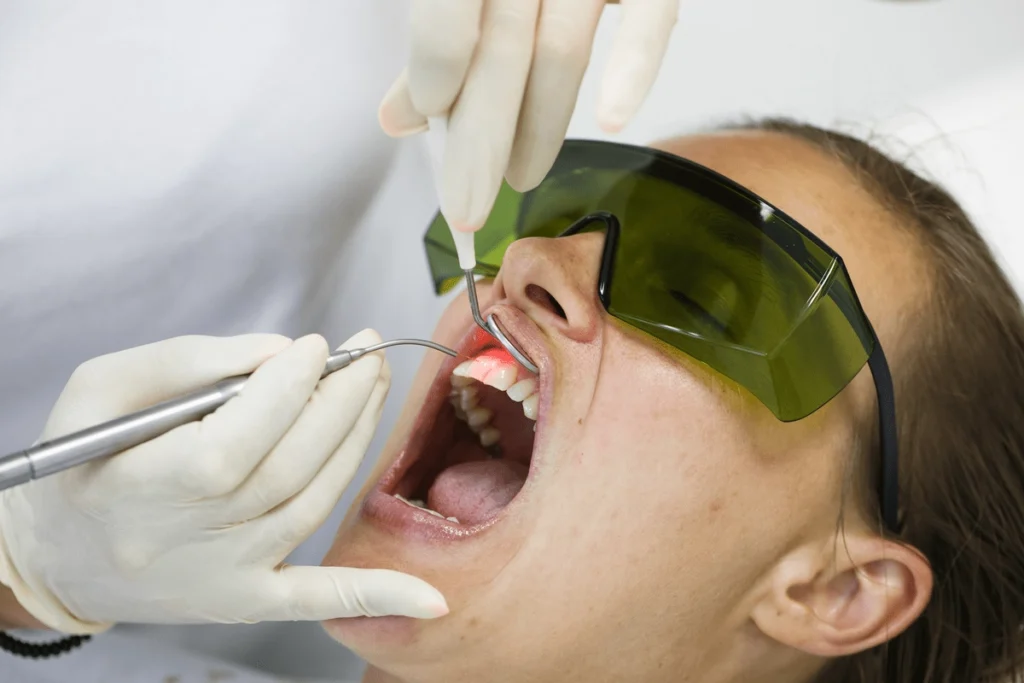Laser gum contouring has become a highly sought-after cosmetic dental procedure worldwide, and South Korea stands out as a leading destination for international patients seeking expert care. With advanced laser technology, experienced dentists, and tailored services for medical tourists, Korean clinics provide a seamless experience from start to finish.
If you’re an international patient considering laser gum contouring in Korea, here’s an in-depth guide on what to expect before, during, and after the procedure to ensure a smooth and successful treatment journey.
Before the Procedure: Preparation and Consultation
1. Virtual or In-Person Consultation
- Initial contact: Most clinics offer online consultations where you can share photos and your dental history for a preliminary assessment.
- Comprehensive evaluation: Upon arrival in Korea, you’ll undergo a detailed oral exam including X-rays and 3D imaging to assess gum tissue and bone structure.
- Personalized treatment plan: Based on the evaluation, the dentist will tailor a gum contouring plan considering your aesthetic goals, gum health, and facial structure.
- Medical history review: Inform your dentist about any health conditions (e.g., diabetes, blood disorders) or medications, which may affect treatment or healing.
- Pre-procedure instructions: You may be advised to avoid smoking, alcohol, or certain medications prior to surgery to minimize risks.
During the Procedure: What Happens in the Clinic
1. Local Anesthesia
- To ensure comfort, local anesthesia is administered to numb the gum area targeted for contouring.
2. Laser Gum Contouring Treatment
- The dentist uses a precise dental laser (such as diode, erbium, or CO2 lasers) to gently remove or reshape excess gum tissue.
- The laser cauterizes blood vessels as it works, significantly reducing bleeding and swelling.
- The procedure typically lasts between 30 to 60 minutes depending on the extent of reshaping required.
- No stitches are usually necessary, making the process less invasive than traditional surgical methods.
3. Immediate Post-Treatment Care
- The treated area is cleaned and rinsed.
- You may be given antibacterial mouthwash and detailed aftercare instructions.
- The dentist will schedule follow-up appointments for monitoring healing.
After the Procedure: Recovery and Follow-Up Care
1. Recovery Timeline
- First 24-48 hours: Mild swelling and tenderness are common; pain is usually manageable with over-the-counter medication.
- 3-5 days: Most swelling subsides; soft diet recommended to avoid irritating the gums.
- 1 week: The gums start to heal visibly; normal oral hygiene routines can usually resume with gentle care.
- 2 weeks: Full healing of the gum tissue typically occurs, revealing the improved gum line.
2. Post-Procedure Instructions
- Avoid hot, spicy, and hard foods during initial recovery to prevent irritation.
- Use any prescribed or recommended antibacterial mouthwash to reduce infection risk.
- Maintain excellent oral hygiene with gentle brushing and flossing around the treated area.
- Avoid smoking and alcohol as they can delay healing.
- Attend all scheduled follow-up appointments for the dentist to assess progress.
3. Long-Term Care
- Regular dental check-ups are essential to maintain gum health.
- Good oral hygiene practices will help prolong the results of the gum contouring.
- Your Korean clinic may offer virtual follow-ups to support international patients after returning home.
Special Considerations for International Patients
- Language support: Korean clinics catering to international patients often provide multilingual staff or interpreters to facilitate communication.
- Travel and scheduling: Plan your trip to allow enough time for consultation, procedure, and recovery (usually 3 to 7 days).
- Medical tourism services: Many clinics offer concierge services such as airport pickup, accommodation arrangements, and local guidance.
- Virtual follow-ups: Convenient for monitoring healing and addressing questions after you return home.
Final Thoughts
Laser gum contouring in Korean clinics offers international patients an excellent combination of advanced technology, expert care, and personalized service. By understanding the full journey—before, during, and after the procedure—you can feel confident in your decision to travel to Korea for this transformative smile enhancement.
If you’d like help finding reputable Korean clinics, scheduling consultations, or planning your dental trip, just let me know!




